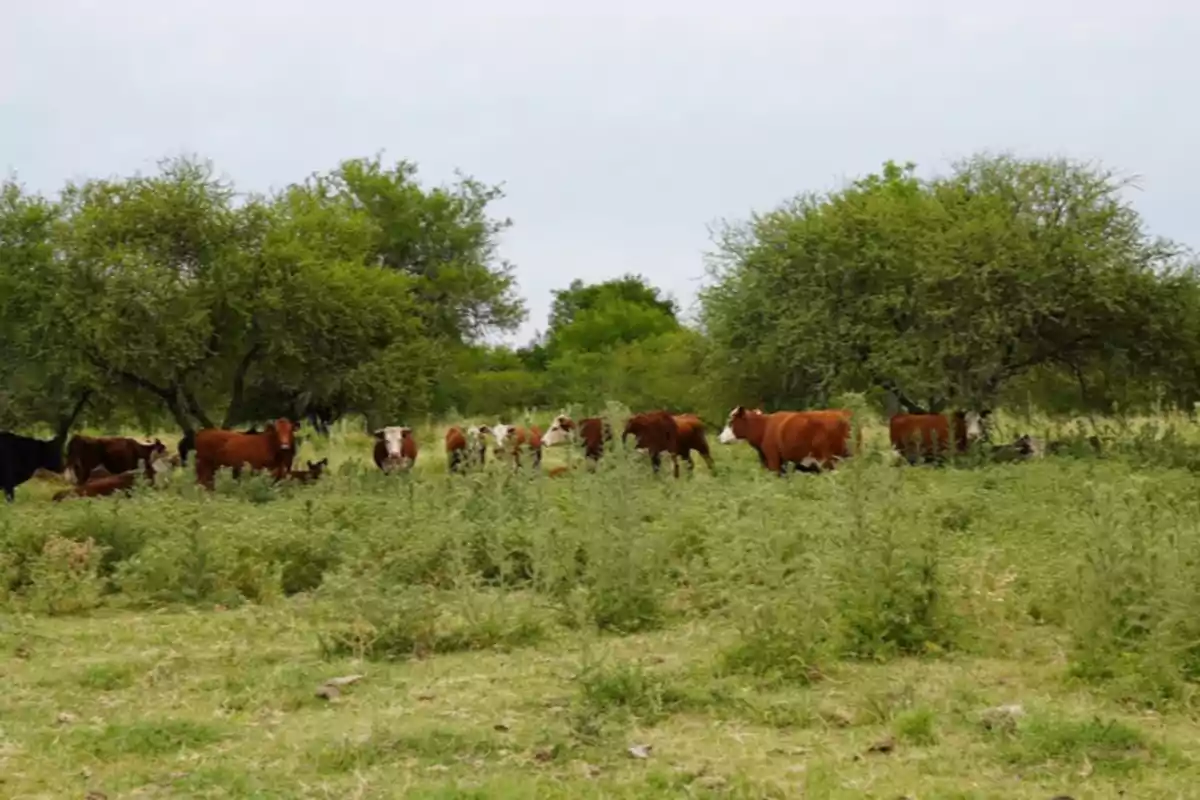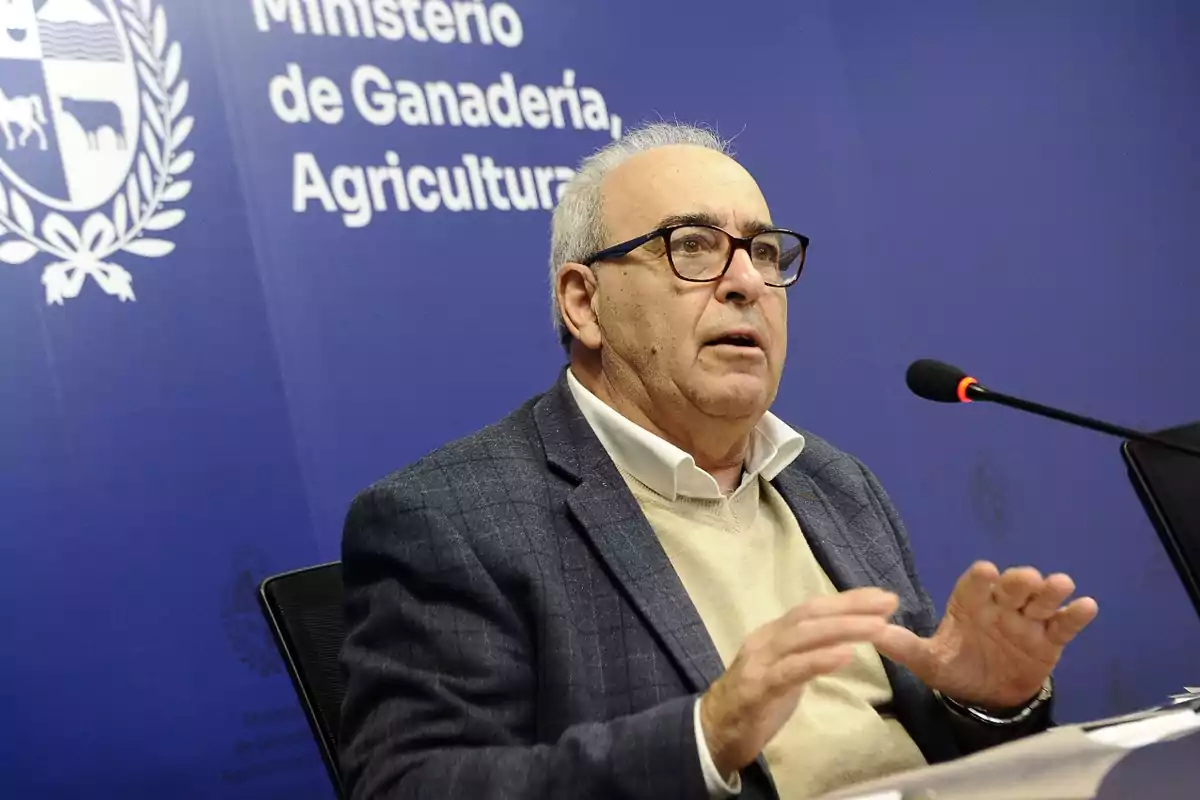
The ban on live cattle exports would cost Uruguay US$300 million
The green agenda also worsens the issue
The recent decision by Yamandú Orsi's government to suspend live cattle exports, announced by the Minister of Livestock, Alfredo Fratti, has triggered a total alarm in the agricultural sector: yet another abuse by the State that threatens economic freedom and national production.
This measure is a carbon copy of Kirchnerism: state intervention that impoverishes, destroys production, and condemns the people to misery, as already happened on the other side of the Río de la Plata.
This is compounded by a new regulatory obstacle: on July 16, the General Directorate of Livestock Services issued a resolution requiring slaughterhouses to comply with the European EUDR regulation, which demands “deforestation-free” products, based on environmentalist criteria imposed from abroad, which increase production costs and limit business freedom.
The suspension of live cattle exports and the EUDR regulation, together, reflect a growing regulatory environment, suffocating the competitiveness and freedom of Uruguay's agro-export sector.
You may also be interested in...
An intervention in the K style
The official argument from the Ministry of Livestock, Agriculture, and Fisheries (MGAP) is simple: live cattle exports have grown considerably, while some slaughterhouses—most of them with Brazilian capital—are facing supply problems.
As a result, the government decided to “suspend” exports, with the supposed intention of “balancing the domestic market.” However, in practice, this measure acts as a ban that restricts freedom of trade and directly harms producers.

Behind this decision lies the same interventionist logic that Kirchnerism applied in Argentina, with disastrous results: exports are limited in the name of “supply problems,” the domestic price is forced down, and the incentive to produce is eliminated.
The consequences are always terrible: loss of competitiveness, decline in exports, loss of trust from the private sector, and, in the medium term, disinvestment.
You may also be interested in...
More globalism, now in agriculture
Fratti stated that the “restriction” is temporary and that calves, animals with genetic value, and dairy cattle are excluded, as if that minimized the damage this intervention causes to the sector.
Worse still, he announced that any exporter wishing to send live cattle must request prior authorization, which will be evaluated directly by the president and the Minister of Economy.
To justify the measure, Fratti referred to the crisis in the slaughterhouse sector, with more than a thousand workers on unemployment insurance and at least six companies closed. But the left's solution is always wrong: instead of freeing the economy, encouraging investment and employment, the State intervenes by repressing productive activity.
Finally, Fratti stated something that is not surprising: the “suspension” complies with World Trade Organization (WTO) rules, since it doesn't imply a definitive ban or discrimination against specific countries.
Uruguay once again responds to international organizations, ignoring the country's real needs.
How much does Uruguay lose?
According to 2024 data, Uruguay exported 386,765 head of live cattle, generating revenues of US$353 million.
If this measure is maintained or is repeatedly applied as a tool of state control, the country could lose approximately US$300 million annually.
This blow affects not only the direct exporter, but the entire production chain: breeders, transporters, rural workers, veterinarians, and many others. In addition, a key reference price is eliminated that allows producers to negotiate with slaughterhouses.

This is a direct attack on economic freedom and the competitiveness of Uruguayan agriculture. This way, the State, far from promoting development, suffocates production and condemns the sector to dependence and poverty. An interventionist logic whose outcome is already known: misery.
You may also be interested in...
Green agenda: new mechanisms of trade control and geopolitical subordination
On July 16, MGAP announced new requirements for exporting beef to Europe. Under the argument of “fighting deforestation,” the European Union and organizations such as the Forest Stewardship Council (FSC) have imposed a new trade barrier: the EU Regulation on deforestation-free products (EUDR).
In October 2024, under the “nationalist” administration of Luis Lacalle Pou, MGAP approved the Environmental Value Added System for Agricultural Production (SVAAPAG), with the aim of adapting Uruguayan exports to these European standards.
Starting December 30, 2025, Uruguay must demonstrate that its products are deforestation-free to access the European market. In this context, the General Directorate of Livestock Services requires agro-industrial establishments to apply new segregation procedures, identifying and isolating “eligible” products according to environmental criteria.
Far from strengthening competitiveness, what is being consolidated is a policy of dependence and regulatory obedience to Brussels. The national productive apparatus thus begins to subordinate itself to logics foreign to its own sovereignty.
Where are we headed?
This was already seen in Argentina under Kirchnerism: export restrictions, liquidation of cattle stocks, plant closures, loss of markets, and a devastating setback in competitiveness. The cost of those terrible decisions was paid by entire generations of producers, workers, and consumers.
This is not a technical or circumstantial policy. It is the return of a statist, interventionist, and populist mentality that has wreaked havoc throughout Latin America.
MGAP, by moving forward with these measures, reveals the objective of this new government: more regulations, more international conditions, less business freedom. Instead of betting on intelligent openness and food sovereignty, dependence on an environmental agenda imposed from abroad is being consolidated and legitimized by multilateral organizations under the banner of sustainable development.
That is precisely the projected horizon: the ironclad consolidation of the 2030 Agenda in Uruguay: greater subordination to globalist interests and, consequently, less freedom to decide our own policies.
Uruguay must not copy failed models or bow to foreign agendas. The defense of the national interest begins by protecting those who produce and sustain the real economy: agriculture, the historic engine of the country.
More posts: